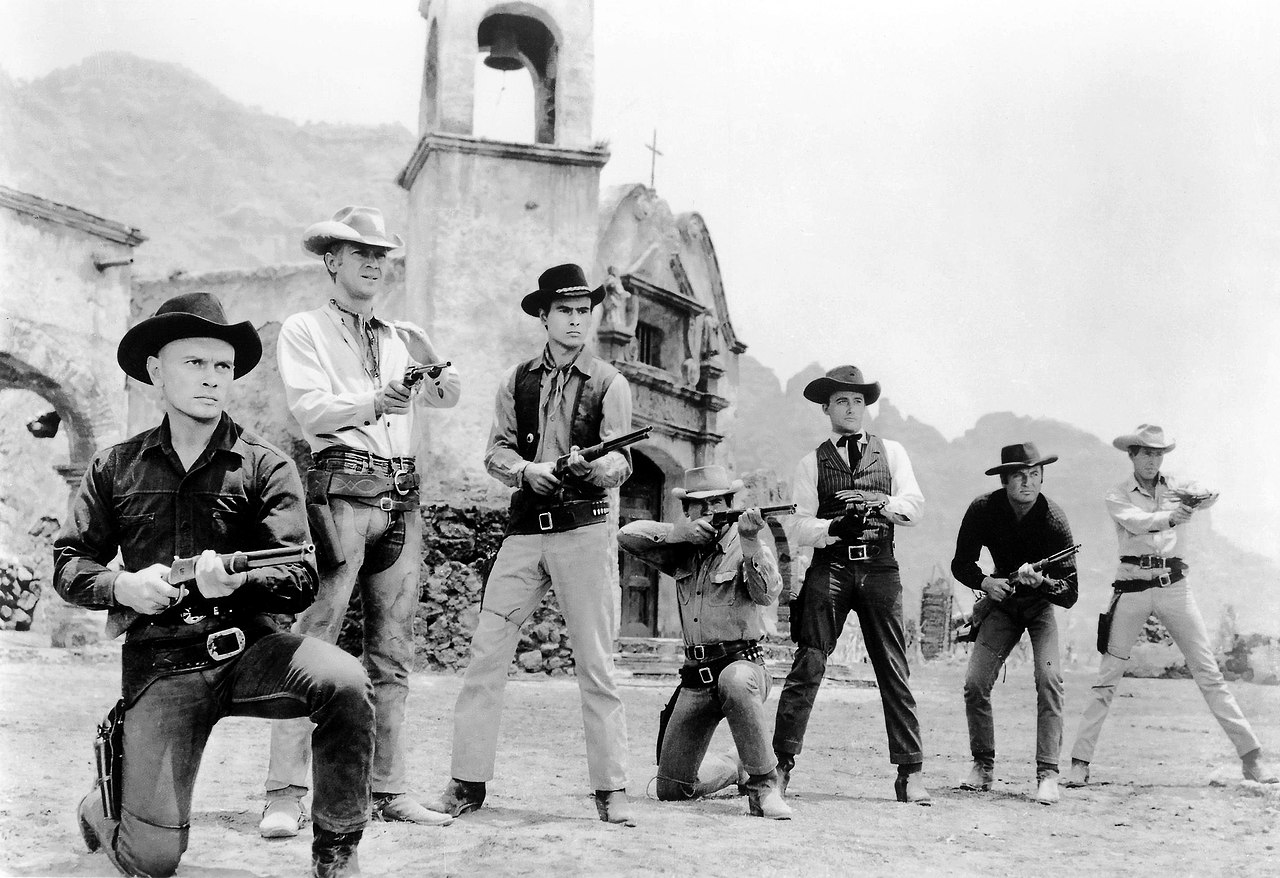Elmer Bernstein’s greatest contributions to cinema
Few composers in the history of film music are as prolific as Elmer Bernstein, an icon of Hollywood’s Golden Age. There are few genres that Bernstein didn’t dabble in, picking up plaudits for his music, and few films he didn’t enhance with his wonderful scores and masterful sense of melody – he picked up 14 Oscar nominations over six decades of scoring, a testament to his incredible talent. Here’s a look at some of his greatest scores.
The Magnificent Seven (1960)
Bernstein’s most iconic score, and boasting perhaps the most famous theme in the western genre. The score for The Magnificent Seven is full of energy and excitement, and it drives the film forwards through sheer frenetic motion (because, contrary to belief, the film moves really slowly and little ever actually happens). Bernstein contrasts the hero theme with a malevolent piece for the villainous Calvera, and uses Mexican and folk music to generate a sense of place for the adventure. With its bold brass and its unrestrained triumph, the music for The Magnificent Seven truly captured the spirit of the American West.
The Ten Commandments (1956)
Cecil B. DeMille had one only requirement for his composer – that the score didn’t sound like the screaming jazz backing that accompanied so many films of the era. And on that front, he certain delivers. This is one of the best epic scores, full of majesty to suit this truly epic tale. Bernstein took full advantage of the chance to score an epic, realising that the music had to be rich and big (in order to match DeMille’s vision for his final film and crowning achievement). He mixed traditional ethnic instruments with electronics like the Theremin, and his score contains an extraordinary 15 leitmotifs across two and a half hours.
The Great Escape (1963)
Another iconic score, with a main theme that has become the go-to music if you’re making an escape. A war film score, it contains the requisite marches and action tropes, but there’s a lot more to it than that – Bernstein mixes in character themes masterfully, employing them in both a bouncy fashion that matches the prisoners’ can-do attitudes and some dark score beats to reflect their reality. We may know The Great Escape primarily for the main theme and the Steve McQueen motorbike sequence, but there’s a lot more to it and Bernstein’s score doesn’t waste a single bar.
The Man with the Golden Arm (1955)
In his early days, Bernstein was known as a jazz composer, and The Man with the Golden Arm is certainly his best jazz score. A heart-breaking film about drug addiction and how it destroys both the addict and those around them, Bernstein convinced director Ottot Preminger that the jazz vibe was needed to speak to Chicago’s seedy nightlife. The exuberance of Frankie’s (Frank Sinatra) theme breaks down throughout the score, reflective of his collapse into addiction, and is backed up by two beautiful pieces for the two women in his life. The emotional undercurrent is hugely important in this film, and Bernstein’s score evolves to capture it perfectly.
Airplane! (1980)
One of the reasons that Airplane! was such a hit was because all of the cast played the silliness completely straight. Bernstein realised that his music needed to follow suit, and he wrote fantastic disaster music for the imperilled passengers. That’s not to say that it’s entirely serious – another highlight of the score is a beautiful love theme that gets very silly when the angelic chorus start to lose time with each other. It’s musical yet deeply funny, and this score is a reflection of Bernstein’s ability to fuse two completely different genres to maximum effect.
To Kill a Mockingbird (1962)
A classic book turned into a classic film requires a classic score, and Bernstein delivers. Much of the score incorporates piano, strings and woodwinds in their high registers to sense of lightness, almost youthful energy – the employ of the main theme, which is almost deceptively simple, is perfect. It’s a fine line to find, balancing the emotion of the film with the sense that we’re viewing it all through a child’s eyes, and yet Bernstein finds it. To Kill a Mockingbird is a story in large part about innate goodness and hope for the future, and his score captures these two feelings. Many regard it as his best score, and it’s certainly a worthy contender.
Far from Heaven (2002)
When Todd Haynes made a film dedicated to master of the melodrama Douglas Sirk and the Hollywood of the 1950s, he turned to titan of the era Bernstein to compose a score. This score is a wonderful one – it’s delicate, lovely and intensely personal, with a main theme that alternates between solo piano and sweeping strings to devastating effect. This was Bernstein’s last film score before his death in 2004, and he went out on a beautiful one and proved him a true master of his craft up to the end.
Honourable mentions: Ghostbusters (1984), Thoroughly Modern Millie (1967), The Age of Innocence (1993), Hawaii (1966), The Hallelujah Trail (1965)

Comments